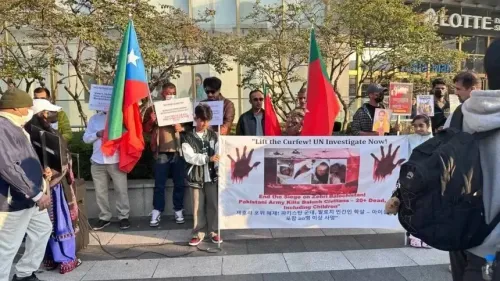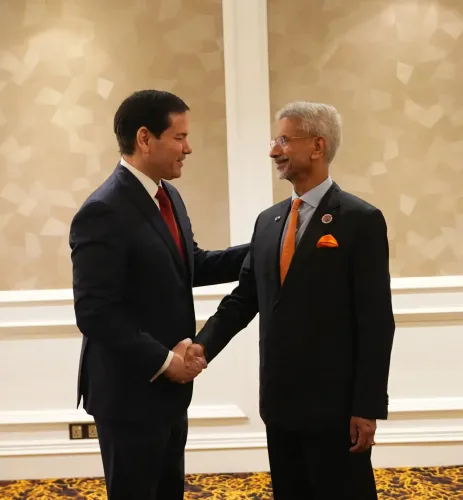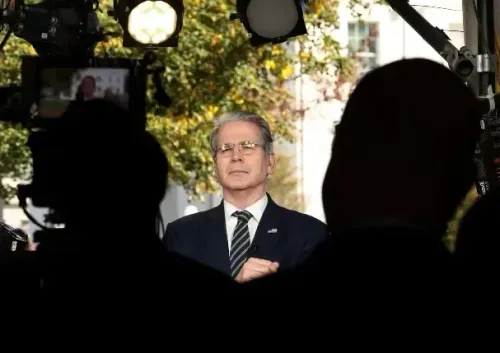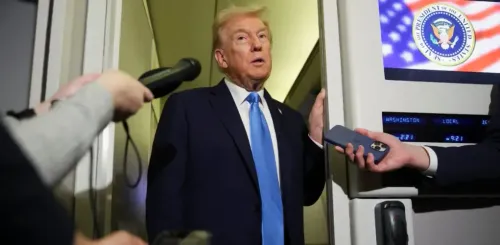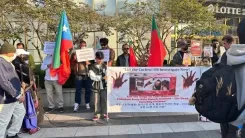Should Countries Keep Working Hard in Tariff Talks Ahead of August 1 Deadline?
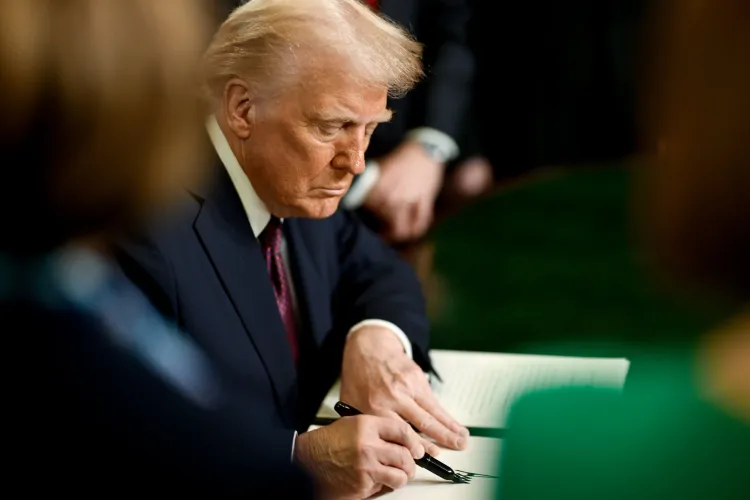
Synopsis
Key Takeaways
- Trump urges nations to continue trade discussions.
- New tariffs on South Korean goods to take effect August 1.
- U.S. trade policy aims to reduce deficits and rebuild manufacturing.
- Allies and partners are encouraged to increase burden sharing.
- Modernizing alliances is critical for future security.
Washington, July 12 (NationPress) US President Donald Trump has urged nations engaged in trade discussions with his administration to continue their diligent efforts as the August 1 deadline for negotiations approaches, reiterating his assertion that the United States has been exploited by both allies and adversaries for an extended period.
Trump's comments came prior to his visit to a flood-affected region in Texas, as South Korea, Japan, and other nations aim to finalize agreements with the United States to avert or lessen the impact of substantial reciprocal tariffs set to be implemented on August 1, according to the Yonhap news agency.
“I believe in hard work. We have faced exploitation for numerous years by nations, both allies and adversaries. In many instances, our allies have been more detrimental than our foes,” he stated during a press meeting at the White House.
“So, I would advise, ‘Just keep pushing forward.’ Everything will fall into place,” he added.
On Monday, Trump addressed South Korean President Lee Jae Myung in a letter, indicating that the U.S. would commence imposing a 25 percent tariff on South Korean goods starting August 1, instead of Wednesday, when the initially planned reciprocal tariffs were to take effect following a 90-day pause.
This new tariff strategy was revealed in April as part of an initiative to tackle trade barriers affecting U.S. exports, diminish the U.S. trade deficit, and rejuvenate American manufacturing.
Meanwhile, discussions between South Korea and the United States took place this week in Seoul, focusing on ways to “modernize” their bilateral alliance in a “mutually beneficial” manner and to enhance its status into a “future-oriented” and “comprehensive strategic” alliance, as stated by both parties.
The consultations occurred as the Trump administration has been urging allies and partners to increase their “burden sharing” while prioritizing the need to counter the “pacing threat” posed by an increasingly assertive China.
“Both parties discussed methods to fortify the US-ROK Alliance into a future-oriented, comprehensive strategic partnership, and to modernize the alliance in a mutually beneficial way in light of an evolving regional security landscape,” read a joint press release issued by both nations.

